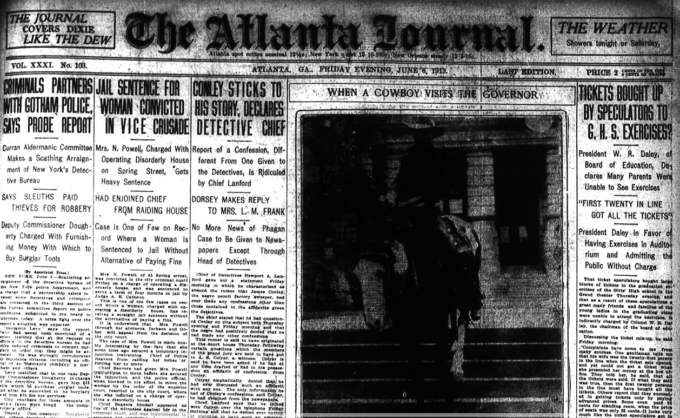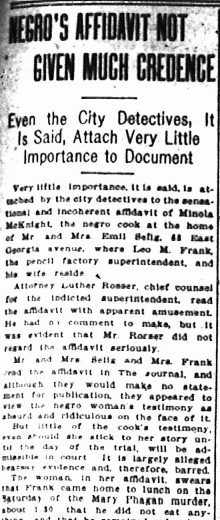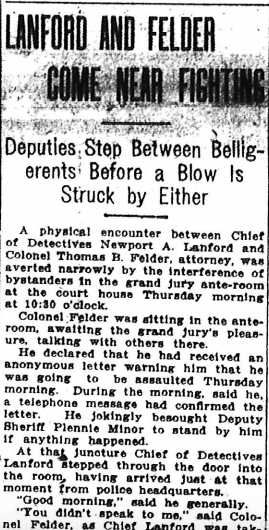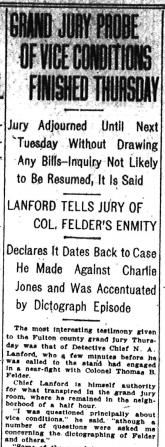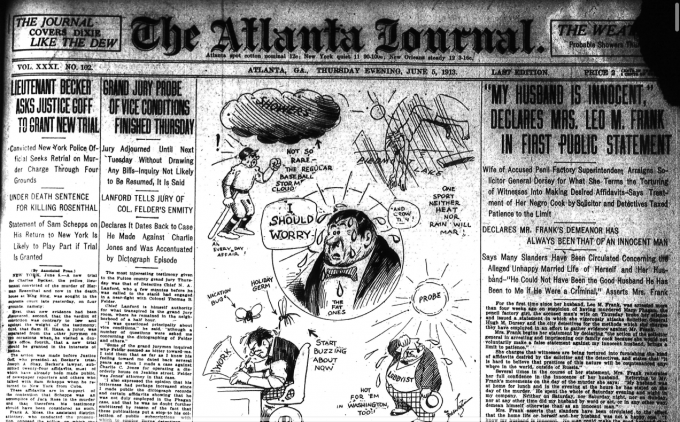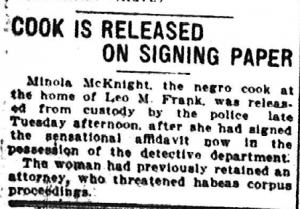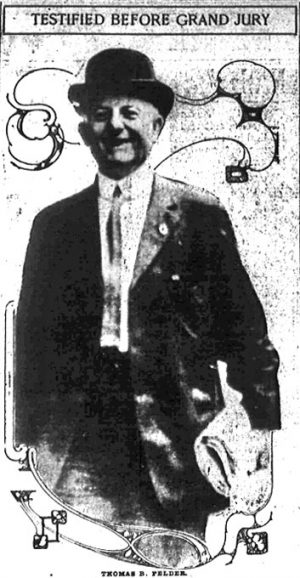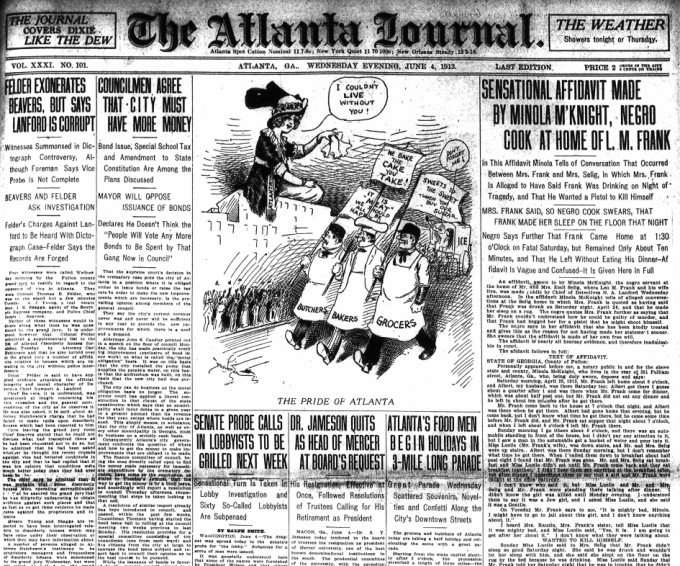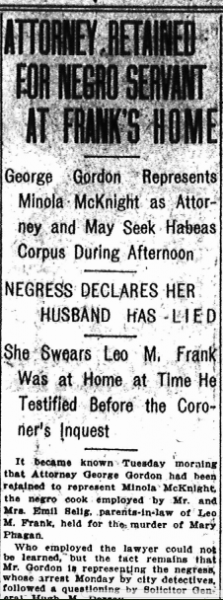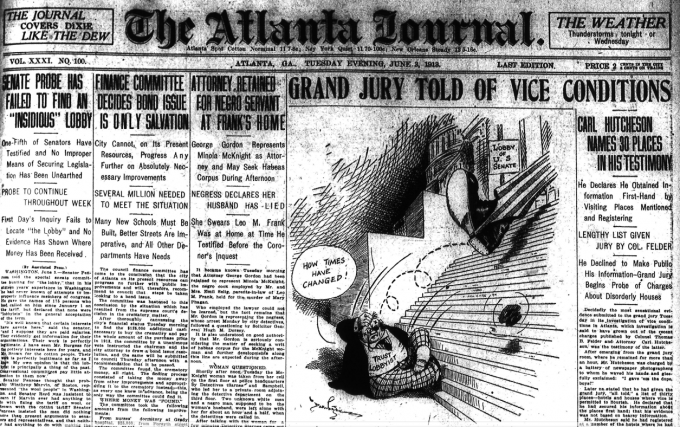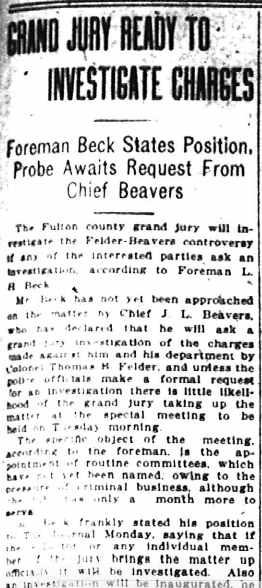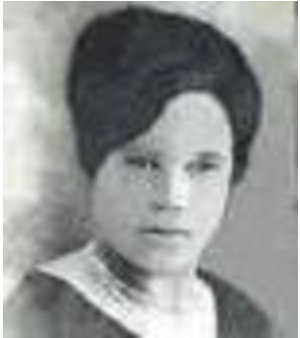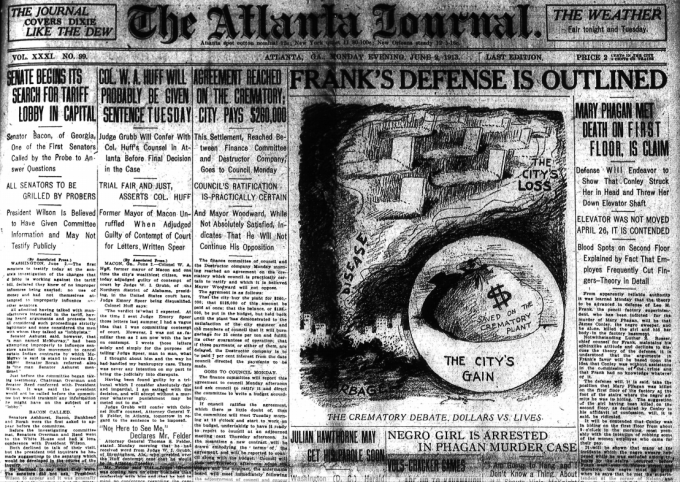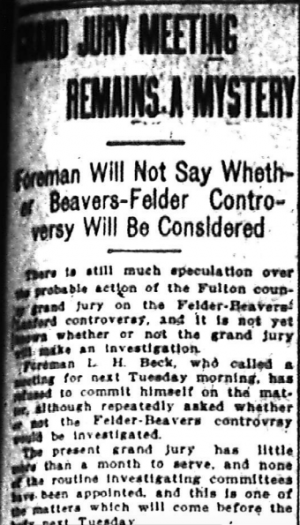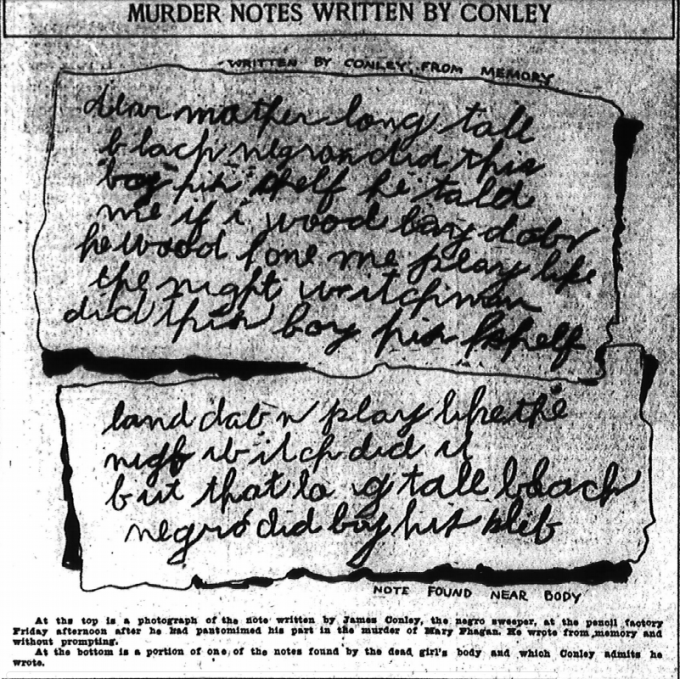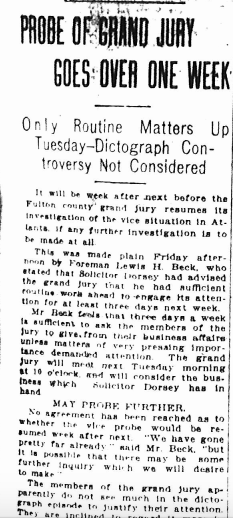 Another in our series of new transcriptions of contemporary articles on the Leo Frank case.
Another in our series of new transcriptions of contemporary articles on the Leo Frank case.
Atlanta Journal
Friday, June 6th, 1913
Only Routine Matters Up Tuesday—Dictograph Controversy Not Considered
It will be week after next before the Fulton county grand jury resumes its investigation of the vice situation in Atlanta, if any further investigation is to be made at all.
This was made plain Friday afternoon by Foreman Lewis H. Beck, who stated that Solicitor Dorsey had advised the grand jury that he had sufficient routine works ahead to engage its attention for at least three days next week.
Mr. Beck feels that three days a week is sufficient to ask the members of the jury to give from their business affairs unless matters of very pressing importance demanded attention. The grand jury will meet next Tuesday morning at 10 o’clock, and will consider the business which Solicitor Dorsey has in hand.
MAY PROBE FURTHER.
No agreement has been reached as to whether the vice probe would be resumed week after next. “We have gone pretty far already,” said Mr. Beck, “but it is possible that there may be some further inquiry which we will desire to make.”
The members of the grand jury apparently do not see much in the dictograph episode to justify their attention. They are inclined to regard it more in the nature of a newspaper controversy than anything else. Continue Reading →


